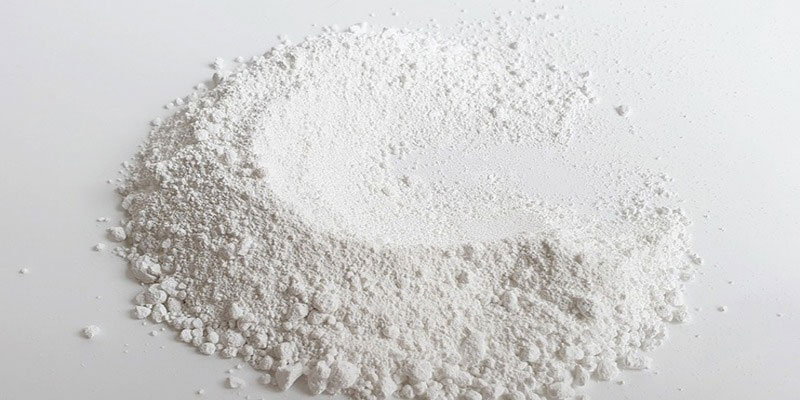It's a searing pain behind your breastbone that we call heartburn. When acid from the stomach rises into the esophagus, a condition known medically as gastroesophageal reflux disease (GERD) arises. This sensation may be accompanied by a sour taste and the feeling that food is being pushed back into the mouth. You may have heartburn after eating or in the middle of the night. Generally, supine or bending positions exacerbate the discomfort. To what end does food become stuck in the esophagus? The lower esophageal sphincter is a thick ring of muscle that relaxes to prevent food and drink from escaping from the esophagus and opens to enable them to enter the stomach. After that, it snaps shut once again. Acid from the stomach may wash back into the esophagus and irritate if the muscle relaxes excessively or weakens. Normal physiological functioning includes occasional heartburn.
To Prevent Or Reduce The Severity Of Heartburn, You Should
Maintain A Healthy Weight

When you're overweight, your stomach will expand and strain your esophagus. If you're at a healthy weight, stay at that weight. The recommended weight loss for those who are overweight or obese is between 0.5 and 1 kilogram each week. Consult your doctor for advice on creating a weight reduction plan that will work.
Avoid Tight Garments
Tight waistbands can be uncomfortable because they put pressure on the lower esophagus and the abdominal organs. Avoiding foods that can give you heartburn is a good idea. When exposed to the same stimulus, no two people will have the same reaction. Foods high in saturated fat, tomato paste, alcohol, chocolate, mint, garlic, onions, and caffeine are all known to aggravate heartburn symptoms. You should avoid foods that you know will trigger acid reflux.
- Eat smaller meals
- Eat fewer, smaller meals to control your weight.
- Don't go to sleep just after eating.
- At least three hours should pass between eating and getting into bed.
Raise The Head Of The Bed
You may put gravity to good use if you suffer from heartburn at night or while attempting to sleep regularly. Raise the upper end of your bed by putting wood and otherwise cement blocks beneath the legs. This will give you an extra 6 to 9 inches of headroom. Elevating your bed may not be an option, but a wedge between your mattress and box spring will help you sit up straight from the waist if you can't get it much higher. You may get wedges at any pharmacy or medical supply shop. Piling on the pillows is ineffective for elevating the head.
Sometimes, Consider Using Over-The-Counter Antacids
Using these items may provide short-term relief from acid indigestion and heartburn. However, if used in large doses or for an extended period of time, magnesium-containing antacids may trigger stomach upset and diarrhea. Constipation is a common side effect of using calcium- or aluminum-based products.
Don't Smoke
The lower esophageal sphincter's efficiency is impaired by smoking. Understand the need to seek medical attention when necessary. Suppose you are experiencing significant chest pain or pressure, particularly if additional symptoms like arm or jaw discomfort or trouble breathing accompany it. In that case, you should get medical attention right away. There is a correlation between chest discomfort and heart attacks. If any of the following apply to you, it's time to see a doctor:
- Frequent heartburn happens more than twice each week.
- The usage of over-the-counter drugs has not alleviated the symptoms.
- If you try to swallow, it just doesn't go down.
- Your nausea and vomiting have persisted for a long time.
- You're losing weight due to problems with your appetite or digestion.
How Can You Get Rid Of Heartburn?

When you ask what helps with heartburn, everyone has a different home treatment they swear by. What about the safety of these home remedies? In the words of Franciscan Physician Network's Mary Rouzer, DNP, a gastrointestinal nurse practitioner: "Natural therapies for acid reflux are OK until we discover damage to your esophagus on a scope that necessitates medication. Learn which over-the-counter treatments for acid reflux are secure to attempt and which ones are most likely to assist before deciding whether or not to contact a doctor.
Conclusion
Acid reflux occurs often. The esophagus, the tube linking the mouth to the stomach, is corroded when acid from the stomach flows backward into it. Medical professionals use the term "gastroesophageal reflux disease" to describe this condition (GERD). Heartburn is more than simply an annoyance; it may drastically lower quality of life." If left untreated, heartburn may cause permanent damage to the esophagus as well as potentially raise the risk of cancer. You may reduce the frequency of heartburn by taking measures such as reducing the size and frequency of your meals, not laying down for at least two hours after eating, increasing the number of loose clothes you wear, including using over-the-counter antacids. Raising the head of the evening, avoiding smoke and alcohol, and especially avoiding heavy meals before the night are a few more methods that have shown promise. It's also crucial to see a medical professional if your heartburn symptoms are severe or ongoing.




